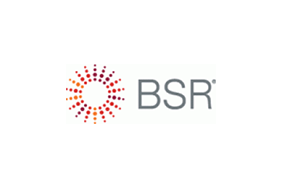BSR Presents Plan to Salvadoran Labor Minister to Boost International Competitiveness and Responsible Labor Practices
Published 12-09-09
Submitted by BSR
At an event featuring representatives of government, civil society, and the private sector in San Salvador today, BSR President and CEO Aron Cramer presented recommendations for El Salvador to the country's Minister of Labor and Social Provision Victoria Marina Velásquez de Aviles to help El Salvador strengthen its international competitiveness through responsible labor practices.
"We believe that El Salvador can seize this unique moment in its history to 'reset' the nation’s position in global markets," said Cramer. "By maximizing both productivity and dignity, there will also be powerful echo effects improving the nation’s social harmony."
The report recommends that the Salvadoran government leverage a diverse set of tools at its disposal to create a competitive export economy resting on responsible labor practices.
Specifically, the report calls on the government to maximize the impacts of government procurement; infrastructure improvements; and legal frameworks for the maquila (assembly) industries, free-trade zones, and the mining sector. In addition, the government can employ fiscal incentives such as contracts, tax breaks, and tariff exemptions as powerful inducements for responsible labor practices that will increase the global attractiveness of Salvadoran products.
To develop and implement these proposals, BSR recommends that the Ministry of Labor adopt a "whole government" plan, with an interagency committee that coordinates the work with government ministries, regulatory agencies, and semi-autonomous entities to advance responsible labor practices.
BSR also proposes that the Ministry of Labor work closely with the private sector, building on efforts by Salvadoran and international businesses to improve working conditions through codes of conduct, verification of good labor practices, and multi-stakeholder efforts throughout their supply chains in El Salvador. The government can also help advance social justice goals by seeking partners in civil society, including labor unions and NGOs.
BSR makes five recommendations:
1. Adopt a "whole government" (gobierno en pleno) approach to advancing responsible labor. Immediate tasks include improving information-sharing through a centralized data-management system among relevant agencies, while assuring reliable safeguards for personal privacy and corporate confidentiality; reviewing existing laws and regulations for incentive and compliance systems; and creating a coherent strategy for establishing a positive public policy framework.
2. Strengthen existing forums and encourage meaningful dialogues among key stakeholders. A fortified Tripartite Supreme Labor Council, for instance, might benefit from linkages to the new Economic and Social Council, which has been established to create dialogue among social sectors.
3. Build a partnership for labor standards enforcement between the Ministry of Labor and global brands operating in El Salvador. The Ministry of Labor should invite brands to share best practices and explore how to collaborate to advance responsible labor.
4. Focus on priorities such as gender equity and the elimination of child labor. Allegations of child labor can threaten a region's reputation and relationships with international buyers. It is time for the government to reassess its 2007-2010 national plan to eliminate child labor. To counter gender discrimination, the Ministry of Labor's Gender Unit could open regional offices in public-sector entities to address gender equity.
5. Improve coordination among international donors and projects advancing responsible labor. Currently, international donors are supporting an impressive number of projects in El Salvador that advance labor practices. The Ministry of Labor should reinvigorate efforts to convene a committee of internationally assisted projects to share information, experiences, and strategies, with a particular focus on the relationship between labor standards and international competitiveness.
This report was written as part of BSR's DR-CAFTA Responsible Competitiveness Project on responsible labor in Central America and the Dominican Republic, which is generously funded through a grant from the U.S. Department of State. In preparing this report, BSR conducted extensive research about current mechanisms in El Salvador that foster responsible labor among different areas. Additionally, BSR performed several interviews with and received feedback on an earlier draft of the report from representatives of government, civil society, and the private sector.
About BSR
A leader in corporate responsibility since 1992, BSR works with its global network of more than 250 member companies to develop sustainable business strategies and solutions through consulting, research, and cross-sector collaboration. With six offices in Asia, Europe, and North America, BSR uses its expertise in the environment, human rights, economic development, and governance and accountability to guide global companies toward creating a just and sustainable world. Visit www.bsr.org for more information.

BSR
BSR
Since 1992, Business for Social Responsibility (BSR) has been providing socially responsible business solutions to many of the world's leading corporations. Headquartered in San Francisco, with offices in Europe and China, BSR is a nonprofit business association that serves its 250 member companies and other Global 1000 enterprises. Through advisory services, convenings and research, BSR works with corporations and concerned stakeholders of all types to create a more just and sustainable global economy. For more information, visit www.bsr.org.
More from BSR

